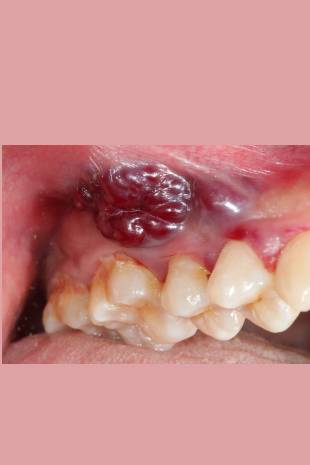


Oral Cancer appears as a sore growth in the mouth that does not go. Oral cancer symptoms include, cancerous growth on the cheeks, tongue, lips, sinuses, hard and soft palate, mouth’s floor, and pharynx. It is critical to look for the best oral cancer treatment timely; otherwise, it can be life-threatening. Make sure you get the right oral cancer stage diagnosed to start treatment immediately. If you are on the lookout for immunotherapy for oral cancer, you can safely place your trust in Denvax. One of the best hospitals for oral cancer in India, Denvax offers advanced oral immunotherapy for cancer. Book an appointment today to find out more about immunotherapy metastatic oral cancer.
Following are the types of cancer-based on which the oral cancer treatment is determined:
● Squamous Cell Carcinoma- Squamous cell carcinoma accounts for over 90% of mouth cancers. These are thin, flat cells that appear like fish scales and are cancerous.
● Lymphoma – These are cancers that grow in lymph tissue within the immune system. The base of the tongue and tonsils contain lymphatic tissue.
● Minor Salivary Gland Carcinomas – These types of cancers grow on the minor salivary glands located across the lining of the throat and mouth.
● Benign Oral Cavity Tumor – These include different forms of non-cancerous tumors in the oropharynx and oral cavity. In some cases, the tumor may turn cancerous.
● Erythroplakia - These are non-cancerous tumors in which certain abnormal cells develop in the throat or mouth.
● Lip Cancer - It is another common type of lip cancer that mostly affects men. It is categorized into two categories that include basal cell and squamous cell.
● Tongue Cancer – It is a type of cancer that grows in the front part of the tongue. These cancers are generally formed in the squamous cells.
Following are the key symptoms that also impact treatment for oral cancer:
● Thickening/swellings, rough spots, lumps, bumps, eroded areas, etc., on gums, lips, and other areas within the mouth.
● Bleeding in the mouth
● The growth of velvety red, white or speckled patches
● Numbness or tenderness in the mouth, neck, or face.
● Soreness in the back of the throat
● Ear pain
● Hoarseness
● Difficulty in swallowing or chewing
● A change in the structure of your teeth
● Weight loss
Your doctor will conduct a diagnosis examination in order to determine the type of oral cancer and its stage. Based on the results of the diagnosis, oral cancer treatment is determined.
● Barium Swallow – This test detects the irregularities in the pharynx, larynx, mouth, and nearby regions. These also detect a small or newly growing tumor.
● Biopsy – In this form of test, a tissue sample is collected to assess the growth of cancer. Biopsy tests are conducted in two ways: incisional biopsy and exfoliative cytology.
● Imaging Tests – MRI, CT scan, or PET is used to produce an image of the mouth region and assess the development of cancer.
● Endoscopy – While a lot of areas of the mouth and nose can be assessed without a tool, doctors sometimes leverage endoscopy to view areas that are hard to see.
● Dental Exam – This is done after the cancer is detected and before the treatment starts.
● X-Ray – Chest X-ray is taken to ascertain whether or not the cancer growth has spread to the lungs.
● Panendoscopy – It is performed when the doctors suspect the growth of oral cancer.
Stage 1 – When the tumor is 2 centimeteror smaller, and the cancer spread has not reached lymph nodes.
Stage 2- The growth of the tumor is between 2 and 4 cm, and there is no spread to the lymph nodes
Stage 3 – The growth is over 4 cm, but the tumor still does not spread.
Stage 4 – The tumorhas spread to the lymph nodes, tissues, and other body parts.
Based on the detection of type and stage of oral cancer, the doctor may recommend one of the following options for the treatment of oral cancer –
● Surgery
● Radiation Therapy
● Targeted Therapy
● Nutrition Therapy
● Healthy Oral Habits

